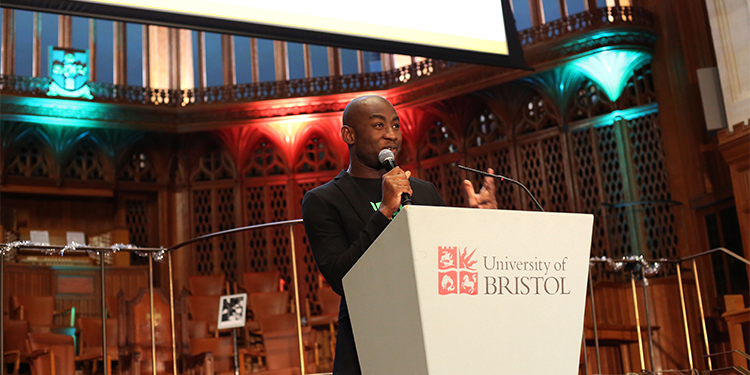
15th July 2023 marks World Youth Skills Day, pioneered by the United Nations. Business West is recognising this annual event as we celebrate 200 years of supporting businesses in the region while reflecting on how businesses can develop skills of the future through working with schools, colleges and young people.
According to the Office for National Statistics, while total job vacancies were down by 250,000 from the level of a year ago, they remained 250,000 above their pre-coronavirus (COVID-19) January to March 2020 levels.
We spoke to Darran Marks, Managing Director of Swindon IoT, a technology college based in Swindon and Poku Osei, Founder of Babbasa, a social enterprise which supports young people into work based in Bristol, about the importance of businesses engaging with young people to both provide opportunities and overcome the skills shortage in the UK.
Why should businesses engage with young people?
It’s important that companies partner with organisations that work with younger generations to create mutually beneficial relationships.
It’s also crucial that these organisations work with employers to understand what they want from new recruits.
A recent survey by the Think Tank Demos found that there is a ‘reckless disconnect’ between education policy and what employers want from staff. They found that two out of three employers surveyed reported a lack of transferable skills that cannot be automated by new technologies. They also found that of the young people surveyed, 61% said a lack of work experience meant they did not feel prepared for starting work after school or university.
Bristol based Babbasa was founded to address this issue in 2010, during a time of persistent low attainment and high unemployment rates post the 2008 financial crash.
They work with disadvantaged young people and support them to develop the skills they need to succeed in the workplace. They also work closely with businesses to understand their skills needs.
Poku Osei, founder of Babbasa and Non-Executive Director of Business West, said:
“Over the years we’ve been able to move over 3000 young people either into further education, employment, or enterprise.
“We work with over 67 ethnic groups and have a mentoring service where professionals give their time and support to young people.
“We also help over 150 businesses to recruit and develop their own cultural competencies.
“The mission is about supporting young people to realise their professional ambitions. If they want to become a lawyer, they're not just going to jump from secondary school into this. We work with employers and education bodies to ensure that they are embedding inclusive practices to help these young people thrive.
“Organisations like Business West make it known to businesses that, yes you can attract talent from The University of Bristol or people in more affluent areas, but there is also a means of attracting equal talent from the inner city area of St Paul's and Bristol and Babbasa can help you balance that.”
Why is working with local business important for educational institutions?
When local institutions partner with businesses, they can offer their soon to be graduates opportunities to skill up and better prepare them for full-time jobs. It also gives employers the opportunity to tell them about the skills they need so courses better match employers’ needs.
Darran Marks, Managing Director of Swindon IoT, an education centre based in Swindon, said:
“It’s absolutely fundamental to us being part of Business West, because without the information from our colleagues in the actual business world, how can we develop curriculum and skills for what they need?
“Businesses need a voice and an opportunity to share that to us, to help us develop. We’re in a position where we can be agile, and therefore we need to hear the information to make it fit the business needs.”
Phil Smith, Managing Director of Business West, said:
“Organisations like Business West are becoming increasingly relevant to help connect employers with local schools and institutions to ensure employers can communicate their skills needs and that local colleges can design courses that prepare young people for work.
“Our work on the Local Skills Improvement plans is ensuring there is that connect between employers and businesses so that skills of the future can be developed in a way that supports our aim to deliver for the businesses of tomorrow, today.”
To read more about the history of Business West, visit this page.
- Log in to post comments


